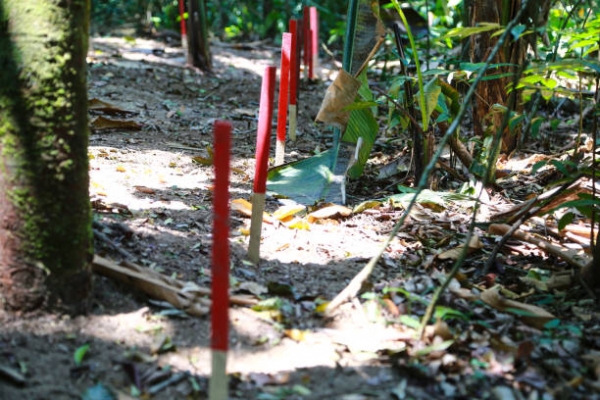The Conflict and Environment Observatory (CEOBs) is a UK-based charity with the primary goal of increasing awareness of the environmental dimension of armed conflict. It pursues this goal by collecting data on the impact of military activities on local communities and the environment. The latter, although highly politicized, has always been considered by policymakers as a "silent victim of armed conflict." The CEOBs, therefore, seeks to challenge this idea in its work, including in the 2021 Women’s Day report.
The report presented provides a general overview of the increasing participation of women in humanitarian demining programs, and explores the environmental and social damage caused by mines and explosive remnants of war (ERW). The acquired data derive from semi-structured interviews of women in six different locations such as Azerbaijan, Colombia, Iraq, Sri Lanka, Vietnam and Zimbabwe. The interviews are carried out by Linsey Cottrell, the CEOBS’ Environmental Policy Officer and Kendra Dupuy, the Norwegian People’s Aid’s (NPA) Senior Environmental Advisor. The testimonies given in the interviews are fundamental to understanding the emergency of environmental damage aggravated by warfare, as well as in re-evaluating women's role in the demining processes.
In addition to demonstrating that ERW have long-lasting environmental consequences, discussions about the environmental impact of military action can also facilitate insights into the experiences of local communities and indigenous people. As stated by Angelica Pardo and Natalia Morales Campillo from the Colombian Campaign to Ban Landmines, communities in areas affected by ERW are particularly vulnerable to mine accidents and exposure to harmful chemicals. This is especially true for indigenous communities, due to their strong relationship with the land and natural resources. The risk is more acute in regions where ERW has been present for decades, as chemical components face degradation, rendering the removal process more challenging and contaminating the environment, including sources of food.
The same view was put forward by Do Thi Thanh Nhan, the Programme Manager for Thua Thien Hue province in Vietnam, who stressed the importance of environmental harm caused by Agent Orange, which was used by the US military in the Vietnam War between 1961 and 1971. One of the herbicide components, dioxin, has been described as a highly toxic and persistent organic pollutant linked to cancers, diabetes, and congenital disabilities. After 50 years, large tracts of land remain unproductive, and the local population continues to be exposed to chemicals that are linked to severe health issues.
According to CEOBs, women can play a significant role in improving environmental protection and raising awareness. Multiple studies have noted how women, seen as caregivers by most societies, are more likely to engage in environmental protection. Women's traditional consideration of the health and safety of the family in such societies is thus intertwined with climate stability. Therefore, women's interest in removing EWR will positively impact the contaminated lands and improve conditions for affected communities.
Nevertheless, the removal of EWR is a challenging process, aggravated by difficult weather conditions, as highlighted by Nillasi Liyanage, a Youth Coordinator at the Sri Lanka Campaign to Ban Landmines. Heavy rains can change the soil's conformation and move mines to other areas creating the need for further examination and local awareness raising. Conditions like these can hinder and prolong the removal of ERW. Furthermore, EWR removal can also negatively impact the soil if not correctly managed.
Despite growing participation in ERW removal operations, especially among women, several obstacles still persist. Crucially, there is an enduring lack of awareness of both social and environmental risks related to ERW. This lack, combined with the challenges of acquiring information on the subject, prevents the investment of adequate funds to facilitate operations. The solution identified by CEOB is to focus on women and their role in family and community networks as key actors in driving improvements in mine action and ERW removal.
To know more please visit:
https://ceobs.org/international-womens-day-2021-women-mine-action-and-the-environment/
Author: Martina Ravagnani; Editor: Alexander Collin







